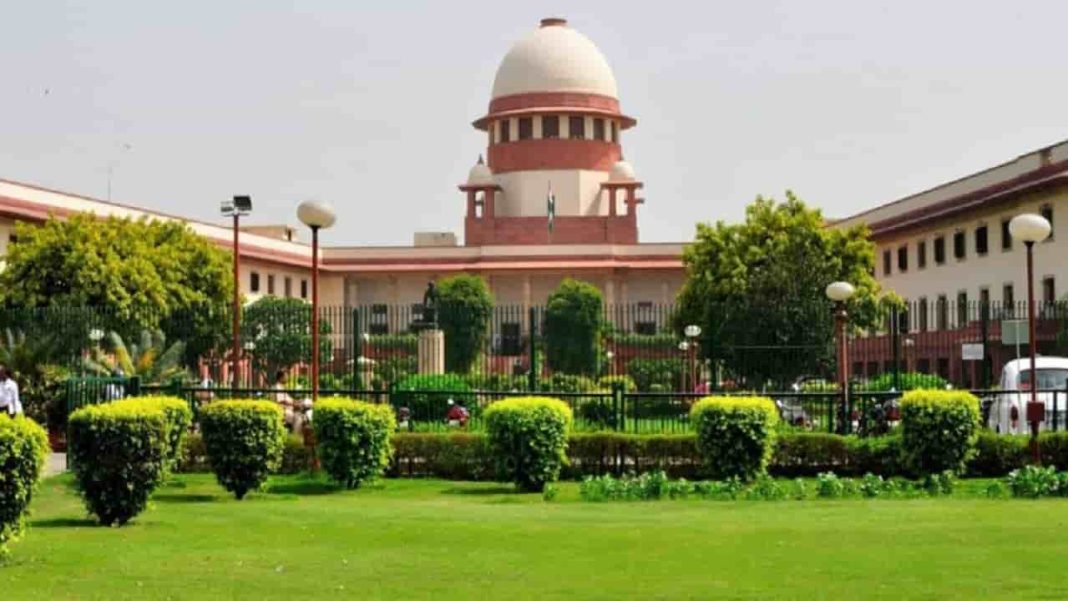A petition filed in the Supreme Court on Saturday challenged its January 8 verdict, which ordered cancellation of remission given to 11 persons, who were convicted for gangraping Bilkis Bano and murdering her family members during the Gujarat riots of 2002.
Filed by Radheshyam Bhagwandas Shah, one of the convicts in the Bilkis Bano gangrape case, the petition contended that the January 8 judgment delivered by the Bench of Justice BV Nagarathna and Justice Ujjal Bhuyan was not only judicial impropriety, but created uncertainty and chaos as to which precedence of law has to be applied in future.
The petitioner further said that it was incorrect in law for the two-judge bench led by Justice Nagarathna to overrule a judgment rendered by another two judge-bench of the Supreme Court.
Advocate Rishi Malhotra filed the plea on behalf of Radheshyam under Article 32.
The petition further contended that it was incorrect in law for the two-judge bench led by Justice Nagarathna to overrule a judgment rendered by another two judge-bench of Justice Ajay Rastogi and Justice Vikram Nath.
Seeking premature release, Radheshyam contended that since the two-judge bench led by Justice Nagarathna disagreed with another two-judge bench (led by Justice Rastogi), the matter ought to have been referred to a larger bench.
The petition said not doing so would violate the Constitution Bench judgment in the Rupa Ashok Hurra case.
The Rupa Ashok Hurra judgment squarely deals with such issues of two benches of equal strength deciding on the same case and delivering conflicting orders, the plea added.
The petitioner further sought bail until the Supreme Court could clarify which of the two-judge bench judgments would prevail.
On January 21, 2008, a Mumbai court had convicted Radheshyam Shah, Jaswant Nai, Govind Nai, Kesar Vohania, Baka Vohania, Raju Soni, Ramesh Chandana, Shailesh Bhatt, Bipin Joshi, Pradip Modhiya and Mitesh Bhatt to life imprisonment for raping 19-year-old Bilkis and murdering her family members during the Gujarat riots of 2002.
The decision was upheld by the Bombay High Court in May 2017 and by the Apex Court in July 2017.
On May 13, 2022, a Bench of Justice Ajay Rastogi and Justice Vikram Nath asked the Gujarat government to consider premature release of the convicts under a policy applicable in the state during their conviction.
The Apex Court ruled that an application of remission should be considered in line with the policy of the State where the crime was committed (Gujarat, in this case) and not where the trial was held (the trial in the case was held in Maharashtra).
Pursuant to this judgment, the Gujarat government applied its remission policy and the convicts were released on August 14, 2023. Various persons, including Bano, moved the Supreme Court against this decision of the Gujarat government.
On January 8, the Bench of Justice BV Nagarathna and Justice Ujjal Bhuyan quashed the remission granted to the convicts by the Gujarat government on the grounds that the convict who approached the top court of the country for remission, suppressed material facts from the Court.
The Apex Court further ruled that the Gujarat government had no power to apply its remission policy to these 11 convicts.
In view of the suppression of facts, the Bench held the earlier ruling of May 2022 as non est and invalid in law, and directed all 11 convicts to surrender within two weeks.


